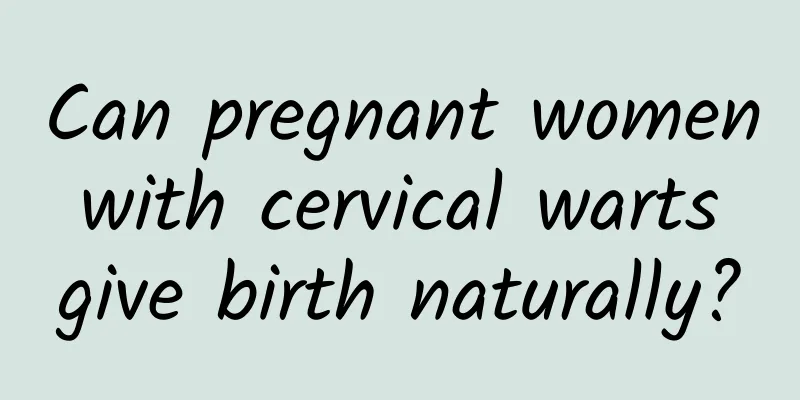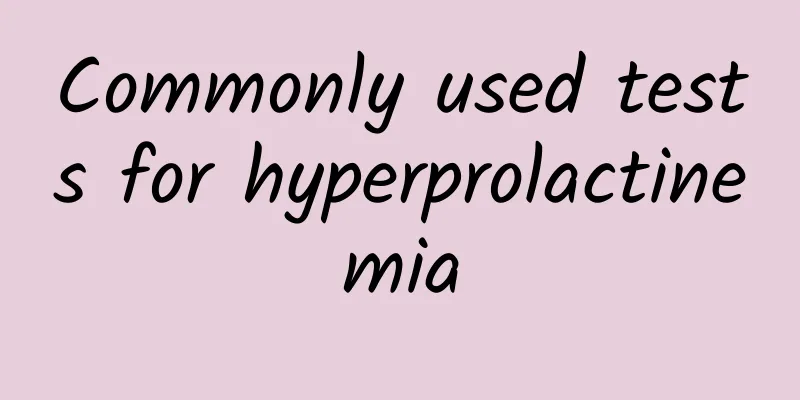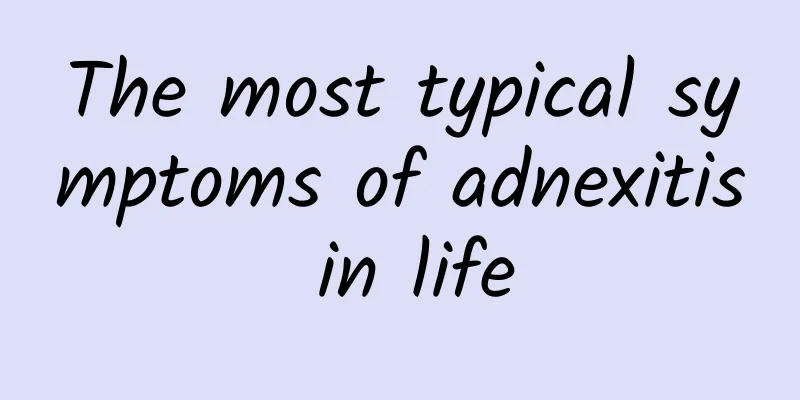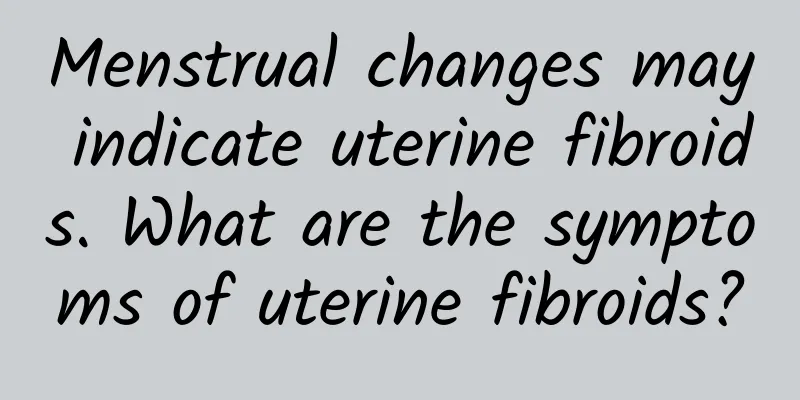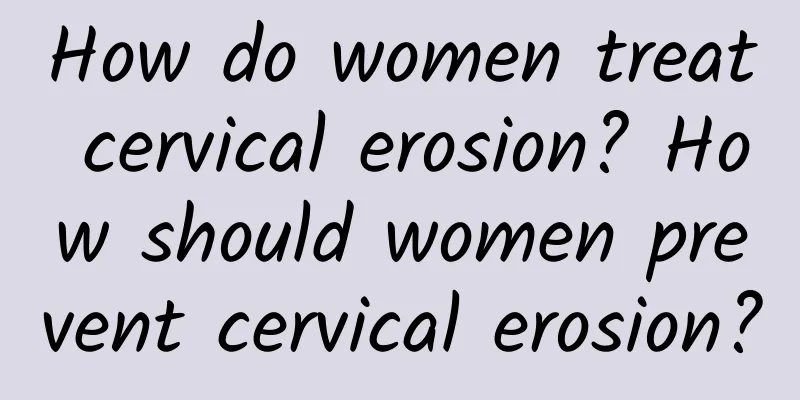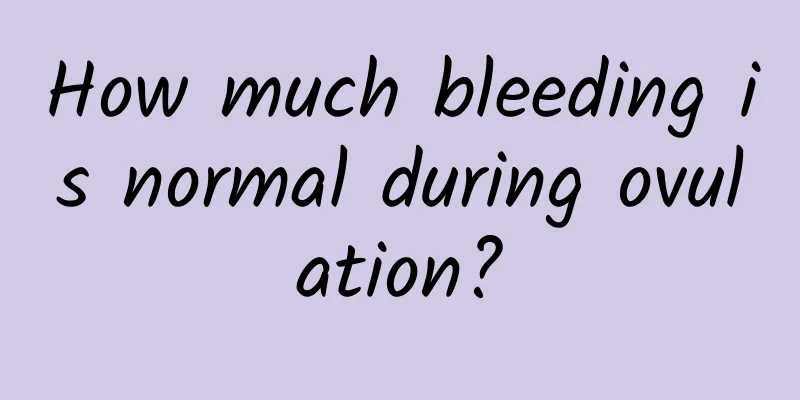What happens if you have an ovarian cyst?

|
Ovarian cysts are one of the common tumors of the female reproductive system. Their formation and development may be caused by a variety of factors, generally including abnormal hormone levels, genetic factors, lifestyle factors, inflammatory infection, endometriosis, etc. The specific analysis is as follows: 1. Abnormal hormone levels: An imbalance in the levels of estrogen, progesterone and other hormones in women, especially when ovulation is abnormal, can easily lead to the formation of ovarian cysts. For ovarian cysts caused by abnormal hormone levels, treatments may include oral contraceptives such as progesterone-estrogen combination tablets to adjust hormone levels, or use Chinese medicine to regulate the endocrine system. If the cyst is large or symptomatic, surgical removal may be required. 2. Genetic factors: Ovarian cysts are hereditary to a certain extent, and women with a family history of ovarian cysts have a higher risk of the disease. Ovarian cysts caused by genetic factors are difficult to prevent through direct treatment, but they can be detected and treated early through regular physical examinations such as B-ultrasound examinations. Once a cyst is found, conservative treatment or surgical treatment should be selected according to the specific situation. 3. Lifestyle factors: Bad living habits, such as staying up late for a long time, unbalanced diet, lack of exercise, etc., may affect the endocrine system and increase the risk of ovarian cysts. Improving lifestyle is an important measure to treat this type of ovarian cysts. Maintaining a regular schedule, a balanced diet, increasing the intake of vegetables and fruits, reducing the intake of high-fat and high-sugar foods, and doing appropriate physical exercise can all help prevent and improve ovarian cysts. 4. Inflammatory infection: Inflammatory infection of the pelvis or ovaries may stimulate ovarian tissue and lead to cyst formation. For ovarian cysts caused by inflammatory infection, anti-inflammatory treatment is required, usually antibiotics. If the cyst is large or accompanied by other symptoms, such as pain, fever, etc., surgical removal may be required. 5. Endometriosis: In endometriosis, endometrial tissue grows on the ovaries, forming cyst-like structures. The treatment of ovarian cysts caused by endometriosis is more complicated, and usually requires an individualized treatment plan based on the patient's age, fertility needs and severity of the disease. It may include drug therapy such as hormonal drugs, surgical treatment such as cystectomy, oophorectomy, etc., and assisted reproductive technology. There are many reasons for the formation of ovarian cysts, and the treatment methods also need to be determined according to the specific situation. Women should undergo regular gynecological examinations. Once an ovarian cyst is found, they should seek medical attention in time so that the doctor can develop an appropriate treatment plan based on the condition. At the same time, maintaining a good living habit and mentality is also important for preventing and improving ovarian cysts. |
<<: What are the symptoms of pelvic inflammatory disease?
>>: What causes cervical erosion?
Recommend
What are the symptoms of vaginitis?
The vagina is one of the female reproductive orga...
What are the dangers of endometriosis?
When endometriosis reaches a more serious stage i...
The treadmill is a dangerous place! 5 must-read safety tips
careful! Treadmills may contain hidden dangers! A...
Why does pelvic inflammatory disease also cause nausea and abdominal pain
Pelvic inflammatory disease is a common gynecolog...
What causes endometriosis?
Under normal circumstances, the endometrium cover...
Frequent abdominal pain and diarrhea? The famous director teaches you to drink "this cup" to easily stop diarrhea and help defecation
Some people are born with weak stomachs and intes...
Dysmenorrhea is not reliable with folk prescriptions
White-collar Fan Fang (pseudonym) started having ...
What is the ranking of menopausal hospitals?
For many female friends, it is not difficult to t...
What causes irregular menstruation?
What causes irregular menstruation? Irregular men...
What are the symptoms of functional ovarian cysts?
Functional ovarian cyst is a common gynecological...
Patients with dysmenorrhea must understand the treatment methods in advance
Dysmenorrhea often occurs in women's lives, w...
What medicine is used for cervical erosion grade I
What medicine is used for cervical erosion grade ...
What are the common symptoms of cervicitis?
The cervix is an important part of a woman'...
Drugs for the treatment of adenomyosis
The treatment of adenomyosis mainly includes anal...
How to treat uterine fibroids? Can patients with uterine fibroids undergo minimally invasive surgery?
Infection and suppuration: Myoma infection is mos...
